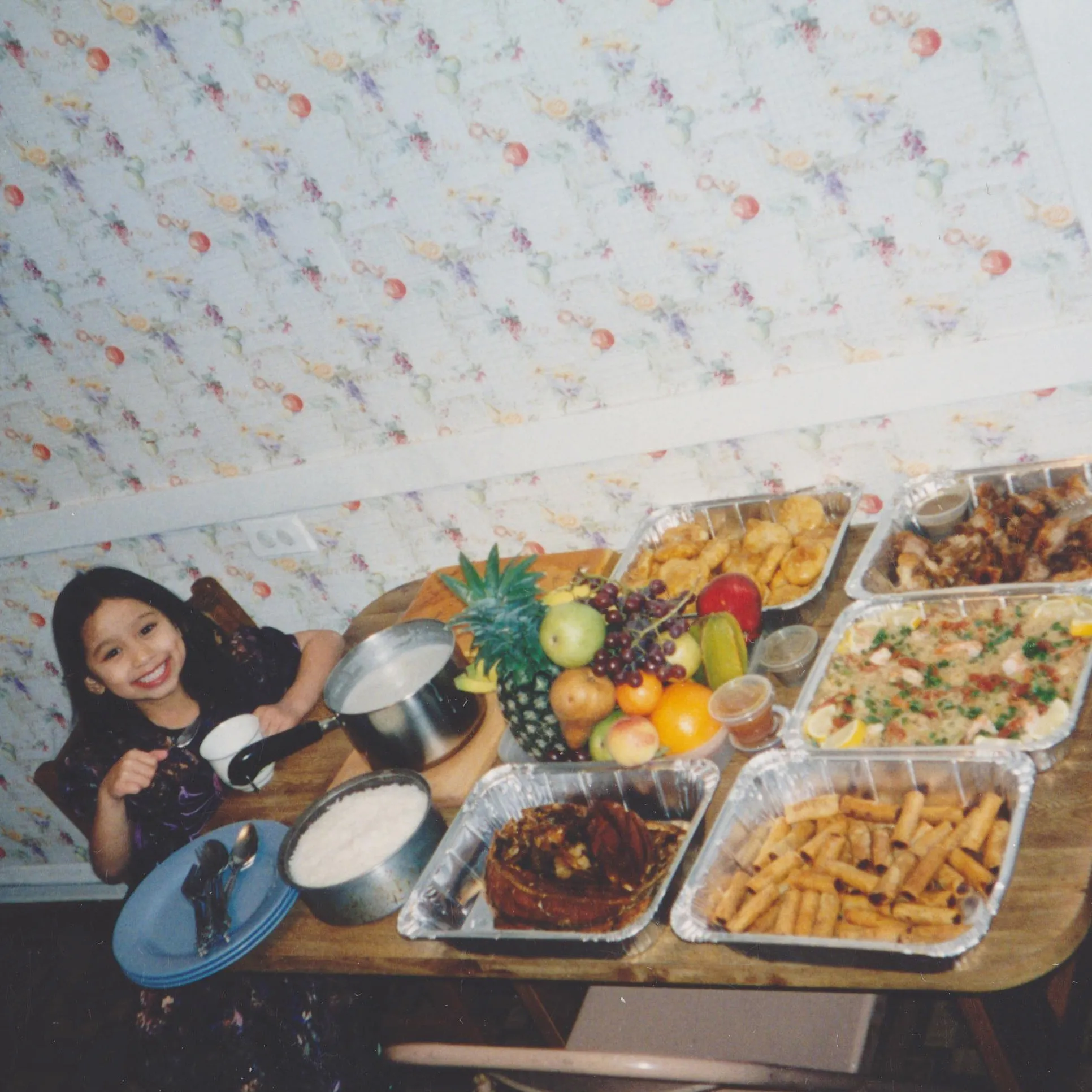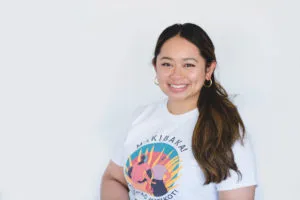Blog
Celebrating Filipino American History Month: An Interview with Katherine Del Rosario
Last Updated:
October 29, 2021
Last Updated:
May 13, 2025
Blog
Last Updated:
October 29, 2021
Last Updated:
May 13, 2025

October is Filipino American History Month! October was chosen to commemorate the first recorded presence of Filipinos in the continental United States, which occurred on October 18th, 1587. The first-ever Filipino American History Month was proposed in 1992 by the Filipino American National History Society, (FANHS). We were lucky enough to sit down with Katherine Del Rosario, one of our associate attorneys, to talk about Filipino culture and what being Filipino means to her.

Katherine, age 7, celebrating New Year's Eve with a feast of Filipino foods. It is a New Year's Eve tradition to display 12 round fruits to attract prosperity for the coming year.
Even though I was born with this identity, I am constantly learning what it means for me to be Filipino. For example, I'm currently taking a language class right now to learn Kapampangan, the dialect my dad speaks. I didn't grow up speaking it, so I want to eventually surprise my dad with what I've learned. The class is online, and my teacher lives in my dad's hometown! I'm excited to explore this part of my Filipino heritage.
I love that our community revolves around food, family, and joy. If you ask someone, 'what are Filipinos like?' they'll probably say we are always smiling. Even if we are going through a difficult time, we find a way to celebrate the good things in life.

Yes. It's called Sinagang Na Hipon. It's a tamarind soup with a ton of veggies and shrimp. My moms' is the absolute best!
It's a very family-oriented culture. It's not uncommon to see multiple generations living in one home, helping each other make life work. In fact, my mom lives with us and helps take care of our baby while my husband and I work.

One way is through volunteering. When I was in law school, I helped start Alliance for Immigrant Neighbors (AIN) to provide affordable, quality legal services to immigrant families in the Northwest suburbs. We started off helping people with their individual cases, such as green cards and citizenship, and have since expanded to provide community education and resources.To learn more about Alliance for Immigrant Neighbors, and to donate to the work that they do, check them out here.